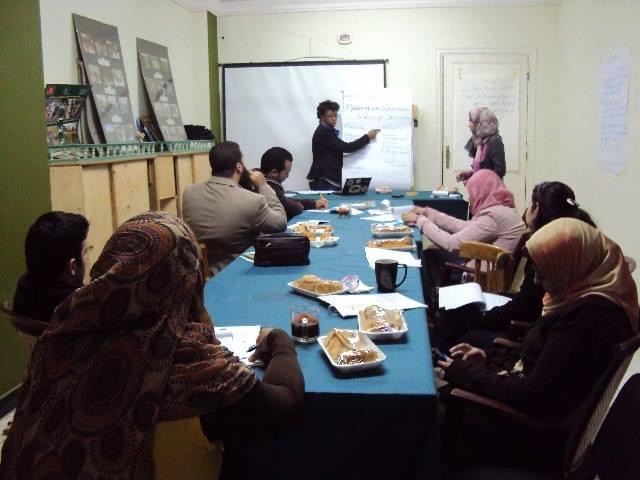Empowering FAODA: Results-Based M&E Training in Egypt
In a 14-day assignment aimed at enhancing organizational capacity and promoting informed decision-making, I provided comprehensive training to the Fayoum Agro Organic Development Association (FAODA) in Egypt. The objective was clear: to equip FAODA members with the necessary skills to implement programs that foster sustainable development through efficient monitoring and evaluation (M&E) systems.
Workshop Overview
Over three days, ten participants engaged in a rigorous workshop titled “Results-Based M&E Planning.” The sessions were structured to achieve key objectives:
- Discussing the concepts of monitoring and evaluation
- Leading the design or revision of FAODA’s M&E system
- Developing fundamental components of the M&E framework, data collection tools, indicators, and evaluation methods.
Day 1: Laying the Foundation
The first day delved into the essence of Results-Based M&E, distinguishing between evaluation and monitoring while exploring their significance in program activities. Participants actively discussed the benefits, stakeholders, and timing of monitoring and evaluation processes.
Day 2: Building Understanding
The focus shifted to understanding indicators and their development. Through interactive sessions, participants explored various types of indicators and data collection tools, emphasizing the advantages and disadvantages of qualitative and quantitative approaches.
Day 3: Implementation and Framework Development
The final day culminated in practical application, guiding participants through the development of an M&E framework and work plan. Addressing critical questions of what, how, when, who, and where, participants gained insights into the operationalization of M&E systems.
Major Accomplishments
The training yielded significant achievements, evident in the participants’ enhanced understanding of M&E concepts. From initially limited knowledge, participants progressed to articulating concepts clearly and constructing effective M&E work plans. Their enthusiasm and request for further training underscored their commitment to applying newfound knowledge in their work.
Recommendations for Continued Growth
To ensure sustained effectiveness, follow-up training is recommended, focusing on specific areas such as designing M&E tools, establishing data collection and analysis guidelines, and clarifying roles and responsibilities. These initiatives will further strengthen FAODA’s capacity as effective program managers and ensure organizational sustainability.
Anticipated Impact
FAODA’s journey towards a results-based M&E system holds immense potential for organizational growth and accountability. By embracing modern management practices and implementing robust M&E systems, FAODA can foster innovation, reform, and better organizational functioning. Ultimately, the adoption of a results-based M&E work plan will lead to increased sustainability and transparency in FAODA’s efforts beyond individual projects.
In conclusion, the training represents a significant step towards empowering FAODA and promoting sustainable development in Egypt. Through continued collaboration and capacity building, FAODA is poised to make a lasting impact on its community and beyond.
Discover more from DG Speaks
Subscribe to get the latest posts sent to your email.




